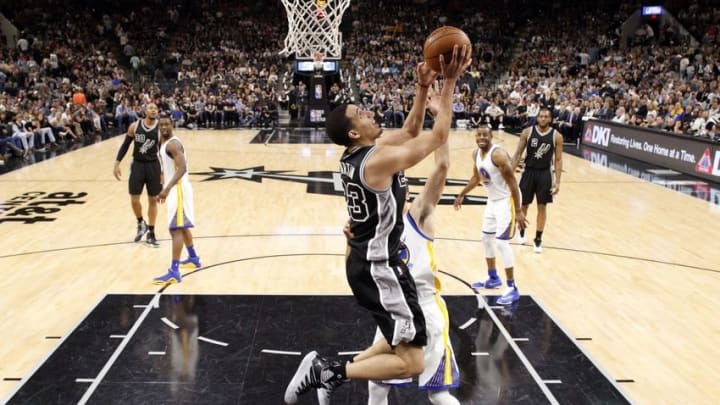The NBA and Their Short-sighted National TV Schedule
By Ian Smith

The San Antonio Spurs are in the process of completing one of the greatest regular seasons in NBA history. Thankfully, the majority of basketball fans around the country have gotten to tag along for the ride.
Although the NBA is generally one of the better professional sports leagues in terms of consumer relations, it’s still a business, and team exposure levels are when this detail gets highlighted most, for better or worse.
The NBA plans it’s nationally televised schedule around what games the league and their broadcasting partners, Turner Sports and ESPN Inc., believe will draw the most viewers. This sounds reasonable at first glance, until it becomes clear that planning for ratings doesn’t necessarily coincide with quality basketball.
The two teams who at the beginning of the season were scheduled for the most nationally televised games were the two NBA Finals participants: the Cleveland Cavaliers and the champion Golden State Warriors with 25 games apiece. This makes sense, as not only are they elite teams, but they feature marquee stars (LeBron James, Stephen Curry, Klay Thompson, Kyrie Irving, and Draymond Green).
More from Spurs News
- Spurs show remarkable poise against Bulls, unlike many fans
- Devin Vassell is the latest in the Spurs’ collection of silent assassins
- San Antonio Spurs: 5 Players to avoid in any LaMarcus Aldridge deal
- Is Gregg Popovich hiding Luka Samanic as a secret weapon?
- San Antonio Spurs News: More DeRozan trade talk from Chris Haynes
Although it may pain the league to devote the amount of exposure it does to the small-market San Antonio Spurs, they realize that the Spurs represent a prolonged success in this league, and can’t realistically be ignored. The Spurs were allotted 21 nationally televised games, more than all but 5 teams.
Not all squads were so lucky. 3 teams got no games whatsoever on national TV (the Philadelphia 76ers, the Detroit Pistons, and the Denver Nuggets). The process of making these scheduling decisions isn’t a complete meritocracy, because going into this season, Detroit and Denver weren’t considered two of the three worst teams. Granted they were well below average, but not atrocious enough to warrant a decision to shield them from the rest of the world at all costs.
The Los Angeles Lakers, on the other hand, might have fit into that category, even with Kobe Bryant’s inevitable farewell tour and the deserved hoopla that would bring. The Lakers had only two more wins all of last season than they got nationally televised games this year (21 and 19). Had that ratio been applied equally throughout the league, the Warriors would have been given 61 nationally televised games, at a much greater benefit to fans of basketball.
The Toronto Raptors had 49 wins last season, and were awarded a measly 2 nationally televised games. The Sacramento Kings got twice as many nationally televised games with 20 less wins. It’s a pattern inconsistent with putting a quality product on TV.
It has always seemed like a short-sighted marketing attempt whenever leagues do this. Yes, you’re benefitting in the short-term by cashing in on casual viewers in a more densely populated area by putting their local team on national television, but if that team is awful, then fans around the league begin to grow restless by being forced to indulge in a mediocre contest when other options were readily available to air.
The New York Knicks vs. the Brooklyn Nets may get better one-game ratings than the Oklahoma City Thunder vs. the Memphis Grizzlies, but the latter is going to improve the prestige of the league by entertaining viewers with a good game.
Why the NBA, TNT, and ESPN are unwilling to sacrifice a little profit on a game in November to keep up the morale of their global audience throughout the entire season is puzzling.
Next: Spurs Lose Home Perfection to Warriors
Let the NBA national TV schedule operate as a true meritocracy, with successful teams being rewarded for achievements on the court, regardless of the market they play in. The league will benefit in the long run from showcasing the best product possible. Both the fans and the league win.